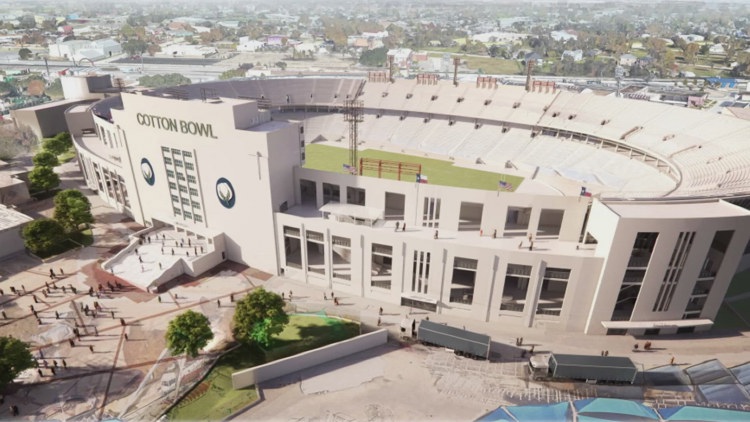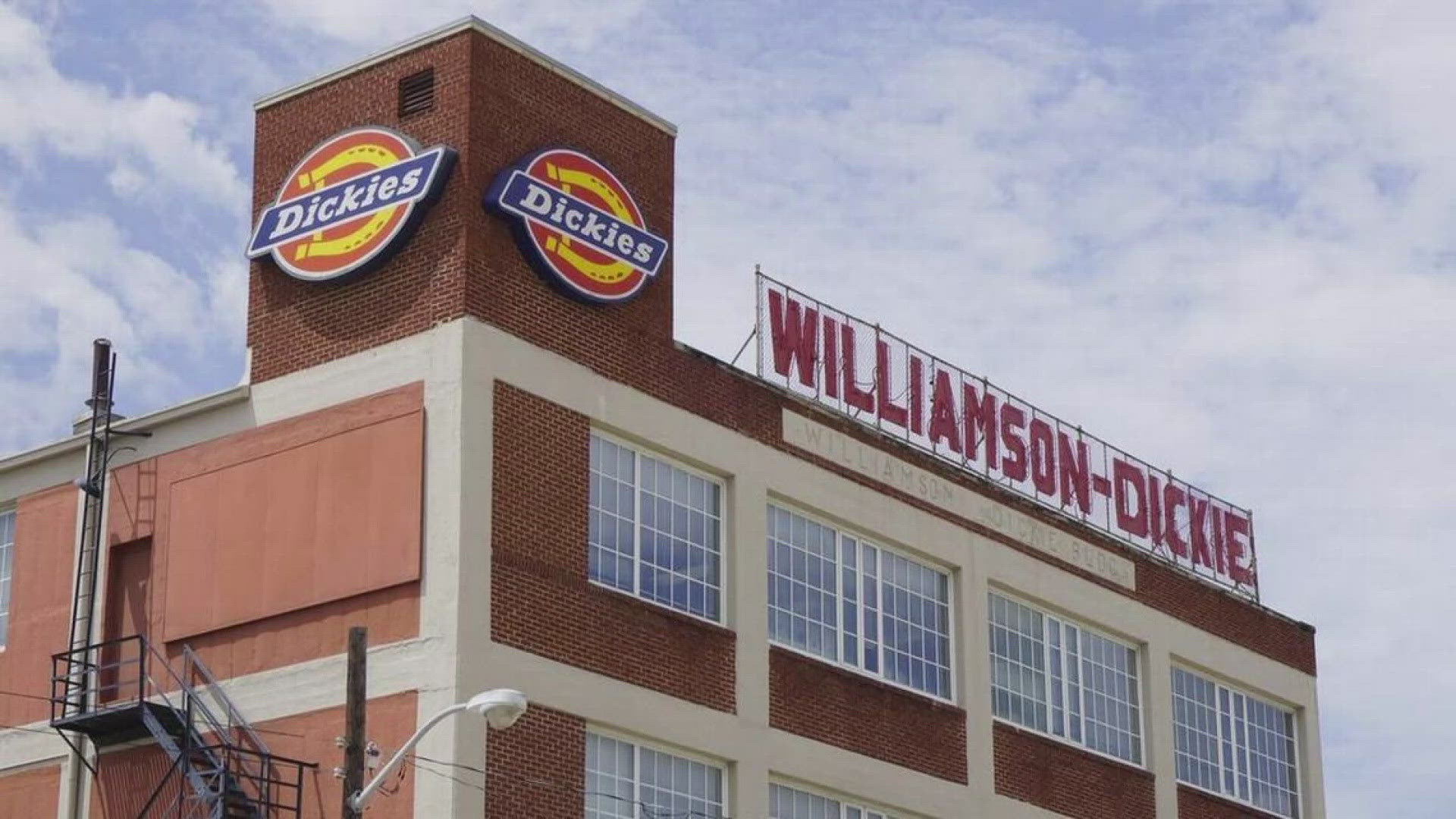DALLAS — The leaders driving $140 million in renovations at the Cotton Bowl see it as a way to further elevate Dallas' position in the global sports pantheon.
The widely touted upgrades will include the addition of 14 escalators, create new premium seating and expand the press area. They will also increase concession stands and restrooms, double the main concourse size on the west side of the facility and triple the upper west concourse to feature amenities such as two outdoor terraces with views of downtown Dallas.
Work started in March and is scheduled to be completed by the start of the 2025 State Fair of Texas, which occurs each fall, according to the Dallas Park and Recreation Department. A second phase focused on the east side of the venue is also in the offing, although that project would likely not be done until late 2034.
The Dallas-Fort Worth area is widely recognized as a pro sports mecca. Upgrades to the Cotton Bowl, located at Fair Park in South Dallas, are driven in part by recognition that investment is needed to maintain that reputation. Bryan Trubey, senior principal at architecture firm Overland Partners Inc., said the $140 million project "is a byproduct of the momentum created" years ago by failed efforts to secure the 2024 Olympics and to convince the Dallas Cowboys to move to Fair Park.
"Sometimes you learn from those opportunities passing you by," said Trubey, whose team is leading the design of the Cotton Bowl refresh.
The project could have a significant impact on the surrounding South Dallas neighborhood, which has historically been overlooked by businesses. The Cotton Bowl renovations are just part of a $300 million investment in city-owned Fair Park, the largest in the fairgrounds' 137-year history.
With construction well underway, Dallas Business Journal reached out to Overland Partners to learn more about what can be expected from the updates.
The firm's goal with the design was to preserve and maintain the stadium's historic character — it dates back to the 1930s and was the site of many classic college football games in the '40s and beyond — while incorporating modern infrastructure and technology to ensure for a safe, comfortable and fun fan experience.
The biggest challenges have included developing a plan to increase the footprint of the site without damaging its historic exterior and also piecing together all of the vintage parts of the complex.
"It's a very easy analogy to think about if you've ever renovated a house, you just don't know all the stuff you're going to find that’s wrong until you start taking a wall down," said Trubey, who heads Overland Partners' Dallas office. "[This is] a large-scale version of that, because parts of the Cotton Bowl are from the 1920s, 1948, 1992 or 2006. It’s like a jigsaw puzzle."
Overland Partners is leading the design team that also includes McAfee3 Architects, Modus and Norman Alston Architects. AECOM was tapped as program manager for overall Fair Park capital projects.
Established in 1987, Overland has offices in San Antonio, Austin, Dallas, New York, Denver and Tokyo and overall is involved in about 30 to 40 projects ranging from roughly 10 acres to a few hundred acres, a little more than half of which are located in the state. The company has 122 total employees and 36 staff members currently working in its Dallas office.
To be within walking distance of Fair Park and closer to one of its biggest clients, the City of Dallas, the firm in January moved its Dallas office to a 10,000-square-foot space in the Cedars.
The site of the new office has flexibility to potentially be redeveloped into a larger property in the future if needed and is also near another project the firm is involved with: creating a larger sanctuary space for Upperroom, a non-denominational church relocating from the Design District.
"We felt it was important to put our money where our mouth is and be one of the people to take a step out, go into an area, claim it for the city [and] have faith about its potential," said Bob Shemwell, senior principal at Overland. "Our brand language is that we unlock the embedded potential. One of the things that the Dallas team has been absolutely clear about is wanting to unlock the potential in South Dallas. It was so fitting that the very first project we got was the Upperroom and then the Cotton Bowl. ... Those [projects are] a lot of velocity and change, and it's going to set the tone for a lot of productive change for an area that needs love desperately."
A recent win for the rejuvenation of the Cotton Bowl came in May when it was revealed that Dallas Trinity FC, a new women's professional soccer club, would play at the stadium. The team has secured up to $592,000 in incentives from the City of Dallas for two years, with the option for a third.



